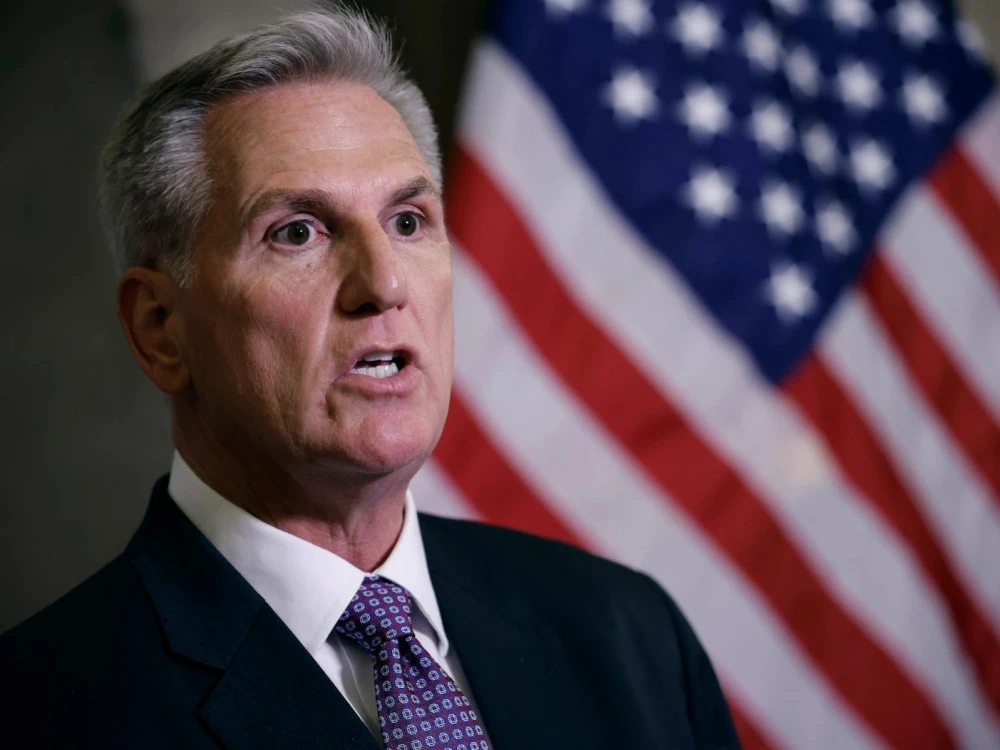House Speaker Kevin McCarthy expressed confidence on Sunday that a bipartisan majority in Congress would approve a compromise in the coming days to raise the nation’s debt ceiling and avoid a historic default that could have severe economic consequences. McCarthy, along with two Republican negotiators, spoke to reporters about the agreement they brokered with President Joe Biden. While acknowledging that the bill did not meet all demands, McCarthy emphasized that it was a necessary compromise for the benefit of the country.
McCarthy revealed that the legislation would be reviewed with President Biden, and the finalized text would be made public, starting a 72-hour countdown for members to read the bill before a scheduled vote on Wednesday. He assured that the bill, which is expected to be approximately 150 pages long, would be a strong one with substantial support from Republicans and the expectation of support from Biden’s party as well.
The agreement, reported earlier by ABC News, is a two-year budget deal that would raise the debt limit separately for two years. It aims to maintain non-defense spending at current levels in fiscal year 2024 and increase it by 1% in 2025. The deal also includes new work requirements for recipients of Supplemental Nutrition Assistance Program (SNAP) benefits, with time limits on benefits for individuals up to the age of 54, except for veterans and homeless individuals. The new requirements would sunset in 2030.
The bill is set to fully fund medical care for veterans, including an extension of funding in the PACT Act. It also streamlines the review process for certain energy projects and includes changes to the National Environmental Policy Act. While government spending on defense and veterans would increase under the agreement, other appropriations would fall below the 2022 level.
McCarthy addressed concerns from some House Republicans who felt that the deal did not go far enough, citing comments from Rep. Ralph Norman and Sen. Rand Paul expressing their displeasure. McCarthy downplayed reports of in-fighting within the party, stating that over 95% of the conference was “overwhelmingly excited” about the compromise during an earlier conference call. He urged members to read the bill before making a decision.
Regarding his position as speaker, McCarthy brushed off the potential risk of a snap vote to remove him from the speakership, stating that he was not worried about such a move. The GOP currently holds a narrow majority in the House, and passing a debt compromise would require at least a bare majority of Republicans, along with enough Democrats to compensate for any conservative defections.
House Minority Leader Hakeem Jeffries informed Democrats in a “dear colleague” letter that the Biden administration would brief them on the terms of the deal. While Jeffries did not make commitments on the caucus’s support, he expressed gratitude to President Biden for his leadership in averting default and looked forward to further discussions.
Talking points circulated by the White House encouraged lawmakers to focus on what the deal achieved, including reducing spending while protecting critical programs for working people and promoting economic growth. McCarthy revealed that he had spoken with Jeffries multiple times and had a conversation with Senate Minority Leader Mitch McConnell to explain the agreement. President Biden, in a statement on Saturday, urged both chambers of Congress to pass the agreement promptly, emphasizing its significance in reducing spending and safeguarding critical programs.
In conclusion, the bipartisan compromise on raising the debt ceiling is seen as a significant step toward avoiding a historic default and its potential adverse effects on the economy. While the bill may not meet all demands, it is presented as a necessary compromise in a divided government. The details of the agreement, including spending limits, work requirements for SNAP recipients, and increased funding for veterans’ medical care, provide a framework for bipartisan support. The final text of the legislation is set to be released publicly, allowing members of Congress to review it before the scheduled vote.



